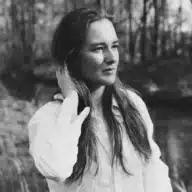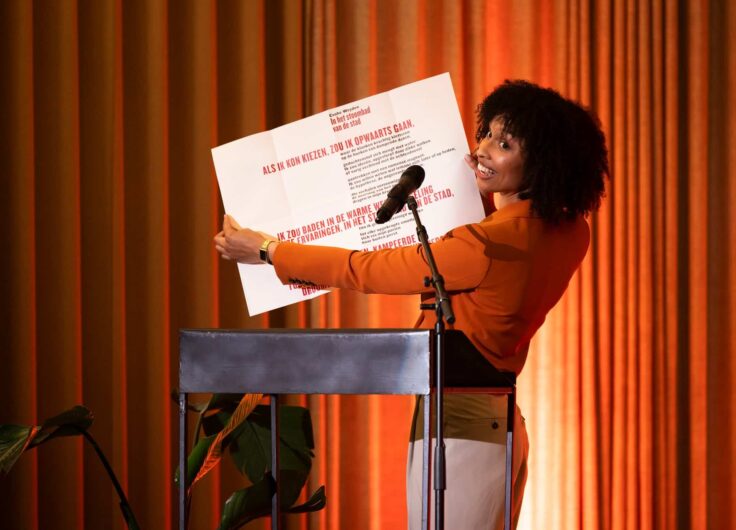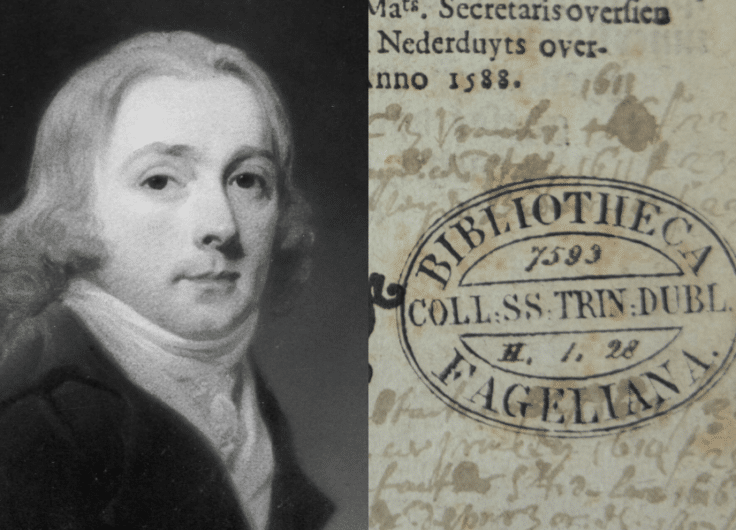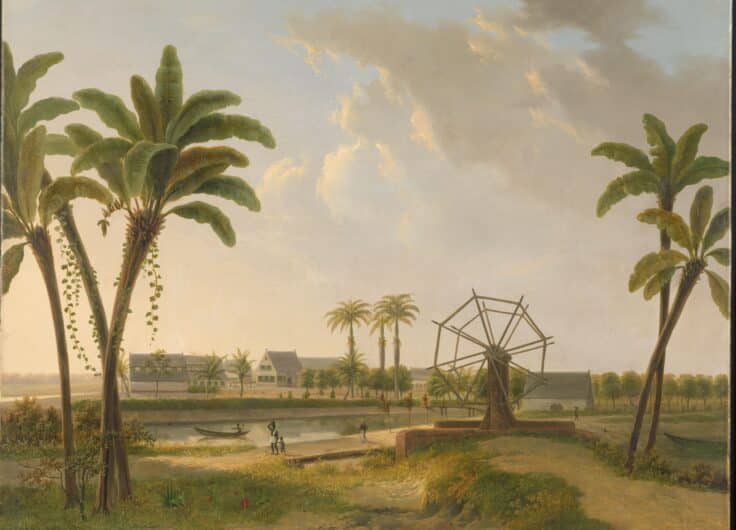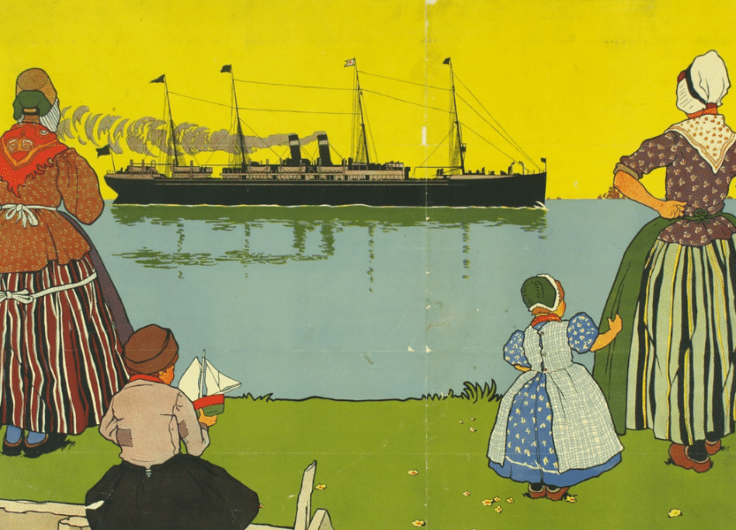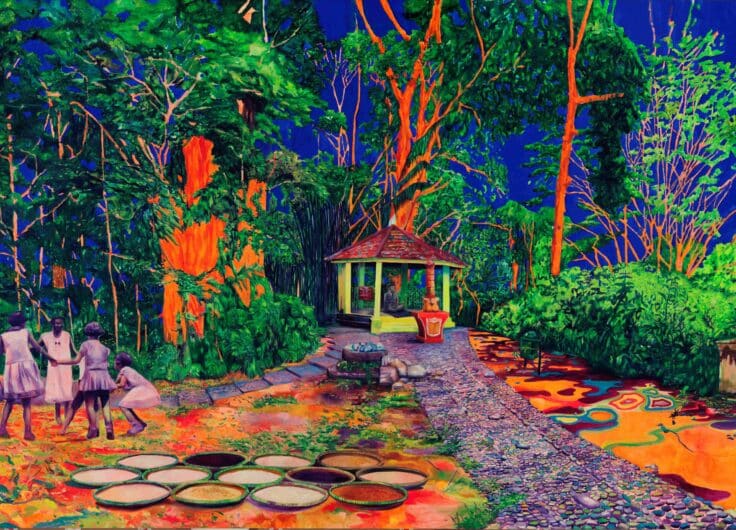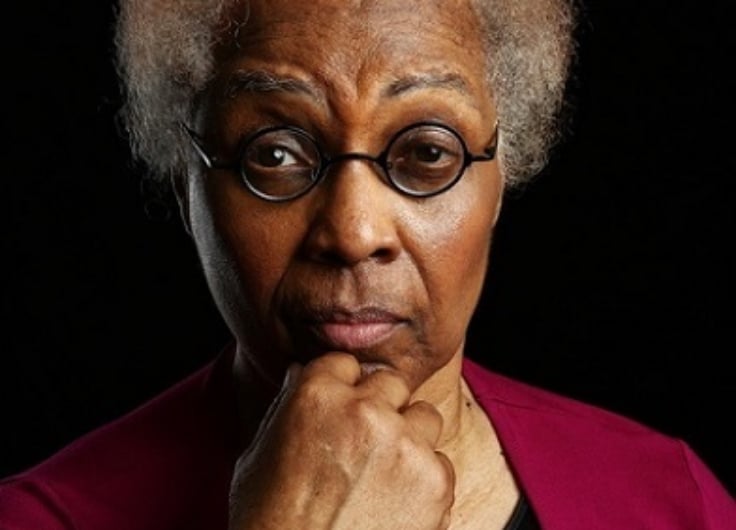The Noble Art of Writing a F*cking Book Title
Book covers are adorned with titles of all shapes and sizes. In the past, titles of Dutch-language books could hardly be long enough, but these days people tend to opt for short and sweet. English titles also go over well, even for Dutch texts. Author Anne van den Dool looked for trends, delving also into her own book-title-history.
I still remember how proud I’d felt when I’d settled on a title for my first novel. Bloemen kunnen breken (Flowers can break). That’s what I had come up with. It was, in my humble opinion, a title with subtle ambiguities: one might read that flowers can be broken, or that they themselves were capable of destruction. Totally literary, I thought.
My agent Willem Bisseling (half of Sebes & Bisseling) made short work of those self-adulations. No flowers in the title, he said. Those are for old ladies. And you don’t want people puzzling over the title either. So, I went back to the drawing board, head hanging low.
 With the speed at which books are published these days, it is becoming harder and harder to land upon an original title.
With the speed at which books are published these days, it is becoming harder and harder to land upon an original title.© Pixabay
This was my first foray into the art of inventing a decent book title. First impressions are important, I learned. The title has to make an impression on the reader, but not so strong an impression as to push away a large swathe of your readership. Like my breaking flowers, evidently.
Title as indicator
It’s also nice if the title matches with the content of the novel so that convinced readers aren’t faced with any unpleasant surprises. No flashy titles for slow burn narratives, no romantic pretensions for cool thrillers. As I strolled despondently through the bookstore after my agent’s dismissive words, I realized how conditioned we are to recognize the genre of a book by its title. De perfecte moord (The Perfect Murder) is pretty self-explanatory, but ominous titles like Cultus, De kooi
(The Cage) and De lange schaduw (The Long Shadow) are easily encoded as thrillers, often helped along by a dark cover that underlines the imminent danger.
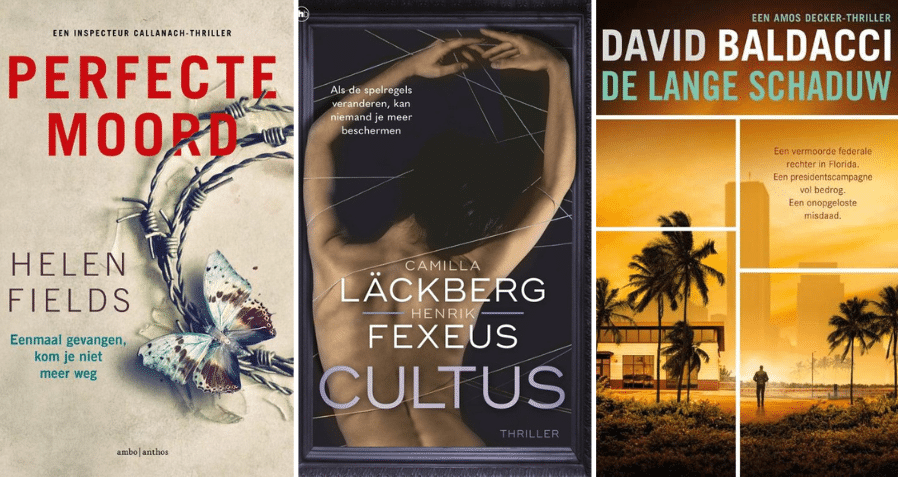 We are conditioned to recognize the genre of a book by its title.
We are conditioned to recognize the genre of a book by its title.And three guesses as to where you’d find Een wonderlijke winterreis (A Wonderful Winter Journey), De zilverboom (The Silver Tree) or Een onverwachte wending (An Unexpected Turn? Indeed, in the candy pink corner of the romance section. Self-help books, in turn, can be recognized by titles posed in question form, more often than not followed by an explanatory subtitle.
Meanwhile, fairy-tale stories have a particular habit of simply listing the most important characters on the book cover. A recent blockbuster has been De jongen, de mol, de vos en het paard (The Boy, the Mole, the Fox and the Horse) by Charlie Mackesy, translated into Dutch by Arthur Japin (himself not averse to the fairy world in his own work). But sometimes we are tricked, for example with Het lied van de stork en de dromedaris (The Song of the Stork and the Camel). Anjet Daanje’s thick and reasonably complex Boekenbon Literature Prize winner is not a fairy tale at all.
And of course, the title can’t have been used too often either. By now, before I get too attached to my new manuscript’s working title, I’ve learned to do a little online search for books with similar names. In the Netherlands, this can be done very professionally via the catalogue on www.titelbank.nl, but a quick Google search also works wonders. Fortunately, Vluchthaven (Port of Refuge), the desired title of my second novel, returned results for nothing more than a Zeeland restaurant located in a village with just under three thousand inhabitants. I was extremely relieved.
Full sentences
With the speed at which books are published these days, it is becoming harder and harder to land upon an original title. When asked, my agent suggests that in recent years this has sometimes been solved by inserting complete sentences into book titles. He sees hundreds of titles from home and abroad in any given year. Not long ago we were both stunned by the success of The Hundred-Year-Old Man Who Climbed Out the Window and Disappeared
by Jonas Jonasson, soon followed by The Girl Who Saved the King of Sweden
(in Dutch translated, literally, as De zonderlinge avonturen van het geniale bommenmeisje – The Strange Adventures of the Genius Bomb Girl). Both titles immediately reveal something of the humorous nature of both novels.
Then there are the more philosophical titles, like those in which one thing is readily equated with another. Take, for example, De avond is ongemak (The Discomfort of Evening) by Marieke Lucas Rijneveld in 2020. Or consider Gebrek is een groot woord (Absence is a Big Word) by Nina Polak. And what to make of titles that put you completely on the wrong track by packaging a novel as a non-fiction book, as Marina Lewycka’s 2005 book A Short History of Tractors in Ukrainian?
A piece of text without a title above it is a bit like a newborn with no name
My agent concludes that those long titles are now a bit passé. Long titles do especially well in the poetry sectoin. One record holder may be Ik ga het donker maken in de bossen van (I’m going to make it dark in the woods of) by former Dutch Poet Laureate Tsead Bruinja. Another may be & de dag ligt open als een ei in zijn gebroken schaal (& the day lies open as an egg in its broken shell) by Bernard Wesseling. Both are titles that, in their surprising beginnings and endings, reveal the originality that we may come to expect from the poems within. Incidentally, Wesseling recently had another go at setting the title-length record with his novel We ramen de schade die ons het zicht op de weelde ontneemt (We Assess the Damage that Deprives Us of the View of the Opulence). I wonder if my agent would have approved it.
In any case, long book titles like these are not entirely new. In 1906 Louis Couperus graced us with Van oude mensen, de dingen, die voorbijgaan (Old People and the Things that Pass). And Frederik van Eeden also logged a decent effort in 1900 with Van de koele meren des doods – translated as The Deeps of Deliverance and Hedwig’s Journey but literally meaning “Of the Cold Lakes of Death”. This title is quick to conjure up dark puddles in the distance into which one could easily disappear – definitely something to strive for when coming up with titles.
Better borrowed
Of course, you don’t have to come up with the perfect book title all on your own. Take, for example, Wij zullen niet te pletter slaan. The title of Nina Polak’s debut was borrowed from William Wordsworth’s poem ‘The Mad Mother’. Likewise Good Morning, Midnight
(1939) by the English writer Jean Rhys referred to the opening line of an Emily Dickinson poem, and more recently Kleine haperende vluchten (Small Faltering Flights) by Femke Brockhus referred to a poem by Vasalis. Fortunately, these books also live up to their poetic titles – another valuable lesson in setting reasonable expectations.
But lately, my agent confirms, we have seen the pendulum swing the other way with the advent of the ‘short but sweet’ book title. November by Thomas Olde Heuvelt, Bang (Afraid) by Lisa Loeb – these are just a few of the titles currently gracing bookstore shelves. My inner originality specialist thinks “exciting!”, because what are the chances that someone else in the history of the written word hasn’t already come up with the same idea? But perhaps we should see it as the ultimate sign of the times, that texts these days must be as short and sweet as possible lest the attention span of the reader falter.
Authors have nonetheless come up with a clever solution to the originality conundrum, as writer Jan van Mersbergen recently pointed out in a blog post on ‘Crazy Titles’. Simply take two words, any words, and stick them together so that they combine to create an extraordinary, preferably never-before-seen combination. Sometimes the results are not so extraordinary, like Melktanden (Milk Teeth) by Emma Curvers, Bloedbladeren (Blood Leaves) by Naomi Rebekka Boekwijt, or Confettiregen (Confetti Rain) by Splinter Chabot.
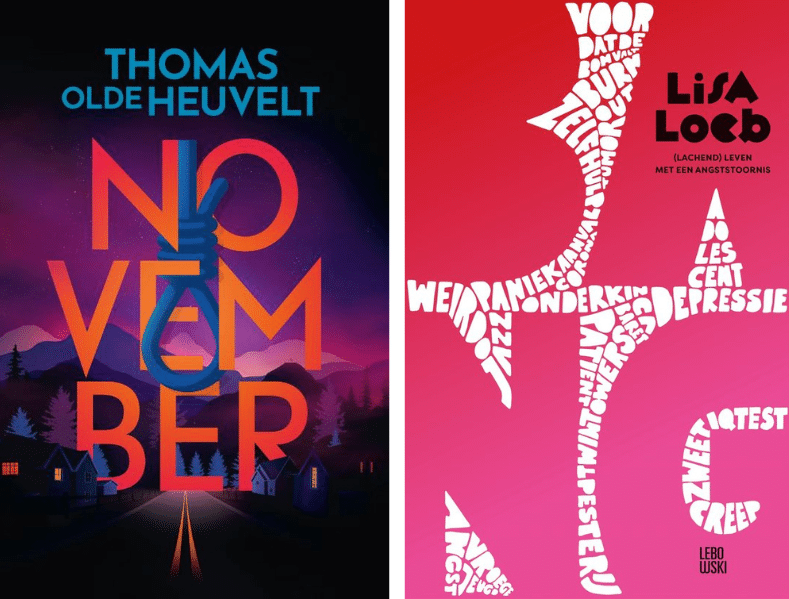 Lately, we have seen a tendency towards ‘short but sweet’ book titles
Lately, we have seen a tendency towards ‘short but sweet’ book titlesBut sometimes it gets more exciting. Wessel te Gusslinklo had a go with De Hoogstapelaar (The High Stacker) and Mariken Heitman gave us Wormmaan (Worm Moon). Both were winners of important literary prizes, so word combinations like these seem to be looked upon favourably. Van Mersbergen does, however, warn against the risk of clichés, or worse, dirty associations – as in Jamal Ouariachi’s latest novel Herfstdraad (Autumn Thread) or Varkensribben (Pork Ribs) by Amarylis De Gryse.
Englishing
According to my agent, another emerging trend for translations – especially from English – is to keep the original title. He observes that younger readers in particular find it cooler to read in English. Take, for example, Colleen Hoover’s books It Starts with Us and It Ends with Us.
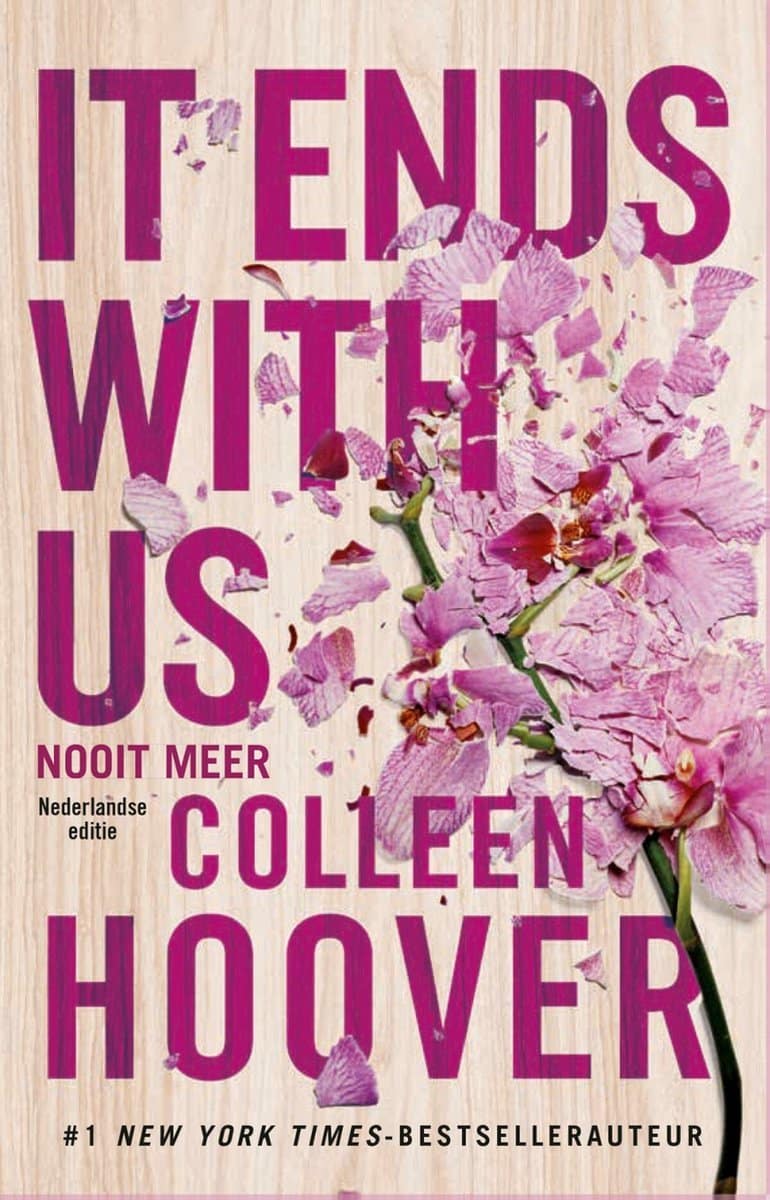 The closer we can stick to the consumption of the English original, the better.
The closer we can stick to the consumption of the English original, the better.But English titles are also increasingly used for books with an adult readership, even if a decent Dutch alternative could have been devised. Sometimes even the original cover is retained. According to my agent, his points towards the pedestal upon which English language and culture are placed in our society. The closer we can stick to the consumption of the English original, the better.
A very specific trend he discerns is the use of the word fuck in book titles, in the Netherlands perhaps most famously in the self-help book The Subtle Art of Not Giving a F*ck by Mark Manson. The book was translated into Dutch as De edele kunst van not giving a fuck – so half-translated titles are also on the table, it seems.
Double meaning
Since I am so hyper aware of the triad of associations that a book title elicits, I also devote some time to their discussion in my writing workshops. After all, what is a piece of text without a title above it? A bit like a newborn with no name, perhaps. In any case, the title can act as a signpost, guiding the reader in the right direction.
As I try to foster in my writing students an awareness of the power of a good title, and to look to their own writing for inspiration, I find myself time and again falling back on the same old tricks. I look for the most original word or the cleverest phrase in the text, preferably one that the word processor adorns with red squiggly lines. These can be extra useful because not only do the readers’ eyes linger upon the word, there is also little competition in search engine results. I also often look for titles that contain a sense of the ambiguity that is reflected in the piece itself. It is the icing on the cake when such a title also contains a beautiful sound or rhyme. When that happens, everything falls into place.
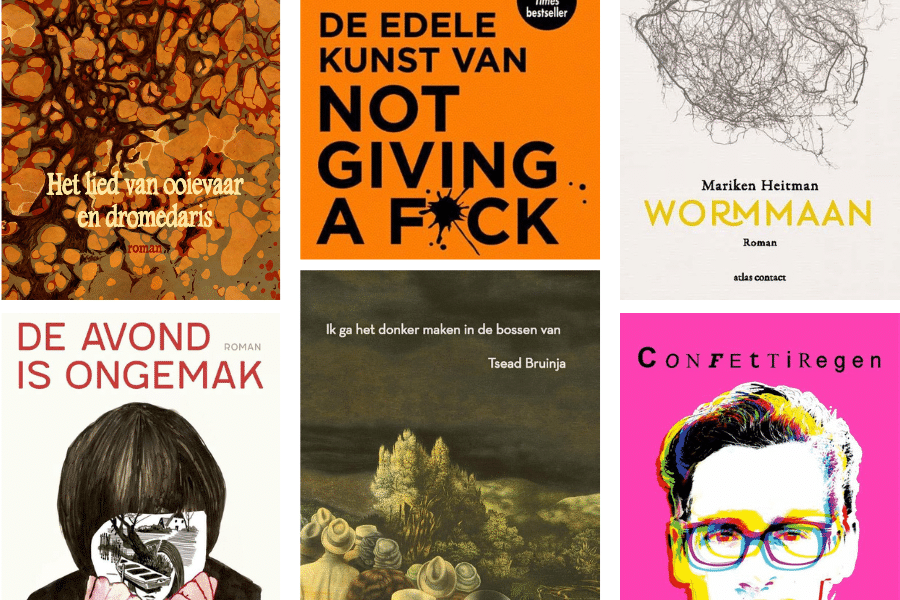 Perhaps the best names are those that you feel have always been associated with the creation in question.
Perhaps the best names are those that you feel have always been associated with the creation in question.And yet, sadly I must admit that nine times out of ten a title simply comes to me, and I can never quite reconstruct the exact moment that it happened. Perhaps the best names, as with children, are those that you feel have always been associated with the creation in question.
The fact that I come up with my own book titles is, according to my agent, an exception to the rule: titles are rarely thought up by the author themselves. They are often too concerned with the representativeness of the title, while a publisher or agent has a better view of its saleability. So far, in my case, no editor or agent has ever had to suggest a book title. But if I do end up completely distraught in the quagmires of expectation, then as a writer this is something to fall back on. On the other hand, can you ever be completely satisfied with a name someone else has come up with for your creation? I doubt it.

